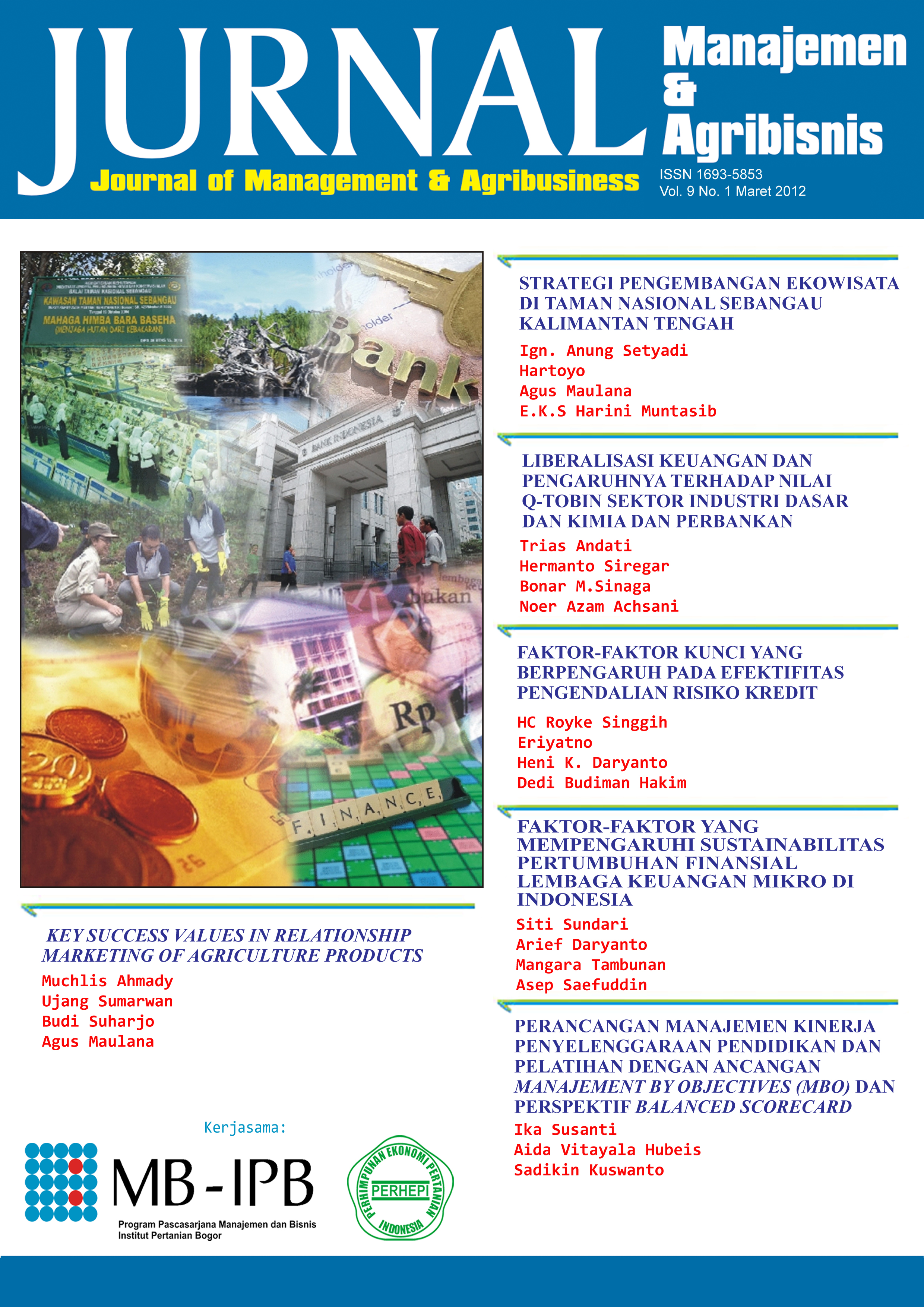FAKTOR-FAKTOR YANG MEMPENGARUHI SUSTAINABILITAS PERTUMBUHAN FINANSIAL LEMBAGA KEUANGAN MIKRO DI JAWA TIMUR
Abstract
Since the monetary crisis in 1998, Indonesia's economy has not fully recovered as indicated by slow economic growth which has not reached yet 8% each year. These conditions load to growing number of unemployed and hence create many demand from the large number of micro enterprise for loan. There were about 50 million micro entrepreneurs which was served only by 56 thousand units of MFIs (Microfinance Institution). This fact intrigued a deep comprehensive analysis at supply side, i.e. the MFIs. The analysis was to study factors that inhibit the sustainability growth of MFIs in order to increase the number of micro business loans. The research was located in East Java province due to the fact that more than 70% MFIs located in Java island and the largest MFIs is in East Java. The samples were obtained by purposive sampling technique and then analysed using descriptive statistics, ordinal logistic regression and biplot. The result proved that the factors which significantly influence the growth of financial sustainability were Regulation, Institutions, Efficiency, CAR (Capital Adequacy Ratio), ROE (Return on Equity), ROA (Return on Asset), LDR (Loan to Deposit Ratio), loan, NPL (Non Performing Loan), HRD (Human Resources Development) and Interest rates. While the factors that did not have significant effect were competition and income per capita.
Keyword : Microfinance Institutions (MFIs), Performance Analyze, Financial Sustainability, Ordinal Logistic Regression
Authors
Authors who publish with this journal agree to the following terms:
- Authors retain copyright and grant the journal right of first publication with the work simultaneously licensed under a Creative Commons Attribution License that allows others to share the work with an acknowledgement of the work's authorship and initial publication in this journal.
- Authors are able to enter into separate, additional contractual arrangements for the non-exclusive distribution of the journal's published version of the work (e.g., post it to an institutional repository or publish it in a book), with an acknowledgement of its initial publication in this journal.
- Authors are permitted and encouraged to post their work online (e.g., in institutional repositories or on their website) prior to and during the submission process, as it can lead to productive exchanges, as well as earlier and greater citation of published work (See The Effect of Open Access).

